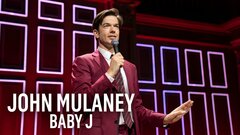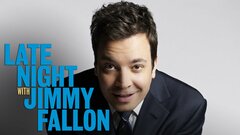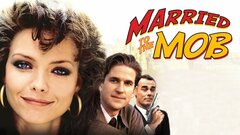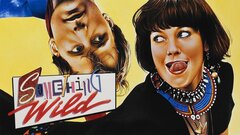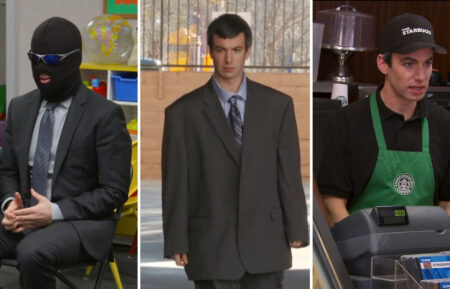One of the most eclectic artists to emerge from the American punk scene of the 1970s, David Byrne was the vocalist and chief songwriter for the band Talking Heads, which blended artistic, abstract sensibilities with a dizzying array of musical influences to become one of the most popular bands of the 1980s before Byrne left the group for a solo career in 1991. He captured critical and listener attention with the nervous energy and displaced emotion in songs like "Life During Wartime, "Burning Down the House," "Psycho Killer" and "Girlfriend is Better," which he underscored with his powerhouse vocals and kinetic stage presence.
Talking Heads broke onto the Billboard charts with 1980's "Once in a Lifetime," which preceded a handful of Top 40 singles before the band's acrimonious split at the dawn of the new decade. In the years that followed, Byrne pursued a sonically adventurous solo career that veered from records that explored international rhythms to soundtrack work, including the Oscar-winning score for "The Last Emperor" (1987) and his own record label, Luaka Bop, which brought many Third World artists to Western audiences. Throughout it all, Byrne remained one of popular music's most independent-minded figures, parlaying his own individual fascinations into a career that drew considerable respect from both the critical and listener communities.
Born May 15, 1952 in Dunbarton, Scotland, David Byrne was the elder of two children by parents Tom and Emma Byne. Two years after his birth, they relocated with their children to the Ontario, Canada port city of Hamilton. There, Byrne developed an early fascination with music through constant use of the family's record player. He proved a quick study on harmonica, and would soon add guitar, accordion and violin to his repertoire of musical instruments.
After six years in Canada, his family moved south to Arbutus, MD, where Byrne's shyness initially made it difficult for him to fit in with his fellow students. But by his high school years, he had formed his first band, a two-man act called Bizardi that featured covers of American pop standards in its set list. After graduating high school, Byrne attended the Rhode Island School of Design (RISD) in 1970, but found himself at odds with its largely upper-class student body and left after a single year.
He remained in Providence, where he performed songs on a ukulele as a solo artist before teaming with RISD student Chris Frantz in a group that initially billed itself as the Autistics before changing their moniker to the Artistics.
The band called it quits after a year, prompting Byrne and Frantz to move to New York. There, they fomented the early stages of Talking Heads, which soon included Frantz's girlfriend, Tina Weymouth, on bass. Following their debut at the famed CBGB's in 1975, Talking Heads built a loyal following among punk audiences that in turn, earned them a contract with Sire Records.
With the addition of former Modern Lovers keyboardist Jerry Harrison in 1977, Talking Heads quickly became one of New Wave's most fluidly creative groups, moving successfully between the intense drive of mid-1970s punk to funk grooves, afrobeat and mainstream pop-rock. At the center of the group's music and image was Byrne himself, who appeared to delight in transforming himself in music videos and live performances to reflect the protean nature of his songs, from the nervous marionette figure repeatedly slapping his own forehead in the music video for "Once in a Lifetime" to the iconic "big suit" he donned in Jonathan Demme's acclaimed Talking Heads concert film "Stop Making Sense" (1984).
After scoring their first and only Top 10 hit in America with "Burning Down the House," Talking Heads moved towards the mainstream. The band landed Top 30 singles with the decidedly straight-ahead pop-rock songs "And She Was" and "Road to Nowhere" from their 1985 record Little Creatures. The following year, Byrne made his feature directorial debut with "True Stories" (1986), an offbeat arthouse comedy about the lives of various eccentric residents of a small Texas town.
Talking Heads provided the soundtrack for the film, which generated a Top 30 hit with "Wild Wild Life." The success of True Stories marked the end of the band's tenure on the pop charts; Talking Heads' next album, Naked (1988) saw the band apply African-derived rhythms to their music, largely at the behest of Byrne. The tonal shift created a schism between the singer and his bandmates, especially Weymouth, who had clashed with Byrne on several prior occasions. Talking Heads would then begin an extended hiatus that would come to a crashing end in 1991 when Byrne announced that the band had broken up via an interview. At the time, none of the other members of the group were aware of the decision.
Byrne had stepped away from Talking Heads on several occasions during the group's heyday, most notably in 1981 to record My Life in the Bush of Ghosts, a collaboration with the group's regular producer, ex-Roxy Music keyboardist Brian Eno that melded Third World rhythms with trance-like electronic music. That same year, he penned The Complete Score from the Broadway Production of "The Catherine Wheel" (1981), a percussion-heavy musical piece for the Twyla Tharp dance project of the same name.
Byrne returned to theater for The Knee Plays (1985), which explored New Orleans brass for Robert Wilson's opera the CIVIL warS (1985). He then moved successfully into film soundtracks, teaming with salsa legend Celia Cruz on the song "Loco de Amor (Crazy for Love") for the soundtrack to Demme's "Something Wild" (1986). The following year, he shared an Academy Award with composers Ryuichi Sakamoto and Cong Su for the soundtrack to Bernardo Bertolucci's "The Last Emperor" (1987).
After completing Naked with Talking Heads, Byrne released his first official solo album, Rei Momo (1989), which reflected his fascination with Latin dance rhythms. The following year, he launched his own record label, Luaka Bop, which released classic and modern albums by artists from Latin America, Japan, Europe and Africa. The label was instrumental in introducing such artists as Os Mutantes, Cornershop, Tom Zé and Susana Baca to Western audiences.
Talking Heads reunited briefly for the 1991 single "Sax and Violins" for the soundtrack to Wim Wenders' "Until the End of the World," after which the band members again went their separate ways. Byrne returned to his eclectic pursuits, directing the 1991 documentary "Ile Aiye (The House of Life)," about Yoruban dance music, before releasing his first classical instrumental album The Forest (1991), which featured music from the 1988 Robert Wilson theater piece of the same name. In 1992, he returned to a more rock-oriented sound for his third solo album, Uh-Oh, which generated a Top 5 single on the Modern Rock Tracks chart in "She's Mad" and set the tone for his subsequent solo releases throughout the 1990s.
In 1996, Byrne began legal action against his former bandmates, who had reformed to record a new album with an array of guest vocalists. The record, No Talking, Just Head (1996) and a subsequent tour were credited to the Heads. The complete quartet reunited briefly for a four-song performance in 2002 for their induction into the Rock and Roll Hall of Fame before once again pursuing their solo interests.
Grown Backwards (2004), which marked Byrne's debut for a new label, Nonesuch Records, found him experimenting with orchestral arrangements and operatic arias. It was soon followed by a slew of soundtrack work, including Lead Us Not Into Temptation (2004), the score to "Young Adam" (2003), as well as a collaboration with DJ Fatboy Slim on Here Lies Love (2008), an opera about the life of disgraced Philippines leader Imelda Marcos that featured guest vocal contributions by Cyndi Lauper and Santigold. Big Love: Hymnal (2008) featured his soundtrack for the second season of the HBO series "Big Love" (2006-2011).
That same year, he reunited with Eno for Everything That Happens Will Happen Today (2008), which preceded a two-year tour behind the record as well as their previous collaborations together. The pair reunited a second time in 2010 to record the score for "Wall Street: Money Never Sleeps" (2010). The year 2012 saw Byrne collaborate with ex-Polyphonic Spree member Annie Clark, a.k.a. St. Vincent, on the record Love This Giant. By Paul Gaita
